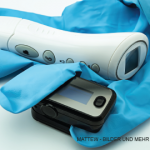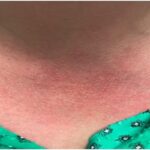NEW YORK (Reuters Health)—Tocilizumab should be the “first choice” for treatment of the autoinflammatory and cutaneous manifestations of pigmentary hypertrichosis and non-autoimmune insulin-dependent diabetes mellitus (PHID) syndrome, say clinicians from the U.K.
PHID syndrome is an extremely rare autosomal recessive genetic disease caused by mutations in the SLC29A3 gene. Children with the syndrome develop patches of hyperpigmented skin with hypertrichosis and Type 1 diabetes. Autoinflammation is increasingly recognized in the syndrome.
In a paper online Oct. 27 in Pediatrics, Dr. Nadia Rafiq and colleagues from Great Ormond Street Institute of Child Health and University College London report the first case of successful treatment of PHID with tocilizumab, a humanized monoclonal antibody that targets the interleukin-6 (IL-6) receptor.1
The 16-year old girl had PHID unresponsive to multiple therapies, including IL-1 and TNF-alpha blockade. Before starting a trial of tocilizumab, she had evidence of significant systemic inflammation and progressive sclerodermatous changes (physician global assessment, or PGA, score 7/10).
Three months after starting tocilizumab (8 mg/kg given intravenously every two weeks), systemic inflammatory symptoms improved and acute phase inflammatory response markers normalized.
After the dose of tocilizumab was increased to 12 mg/kg every two weeks, her energy levels, appetite, fevers and night sweats further improved. Twelve months later, she had less skin tightness (PGA 5/10).
“This excellent clinical and serological response was sustained over 48 months, and cutaneous sclerosis had improved further (PGA 3/10),” the clinicians report. Tocilizumab had no impact on linear growth, diabetes or exocrine pancreatic insufficiency.
Despite experiencing relatively mild infectious adverse events known to be associated with tocilizumab therapy, “the overall improvement in quality of life has been dramatic for this patient,” Dr. Rafiq and colleagues write.
“Although the mechanism of autoinflammation of PHID syndrome remains uncertain, this case highlights an important role for IL-6 in the pathogenesis of autoinflammation associated with recessive mutations in SLC29A3,” they add.
Also, the fact that this patient did not have elevated IL-6 “highlights yet again that peripheral blood cytokines are poor biomarkers on which to base empirical treatments,” they point out.
The researchers suggest that tocilizumab should be the “first choice when considering treatment of the autoinflammatory component of this extremely rare genetic disease.”
They are now treating that patient’s sister, who also has PHID, with tocilizumab.
The authors received no external funding for the report and have no disclosures.
Reference
- Rafiq NK, Hussain K, Brogan PA. Tocilizumab for the treatment of SLC29A3 mutation positive PHID syndrome. Pediatrics. 2017 Oct 27. pii: e20163148. doi: 10.1542/peds.2016-3148. [Epub ahead of print]



